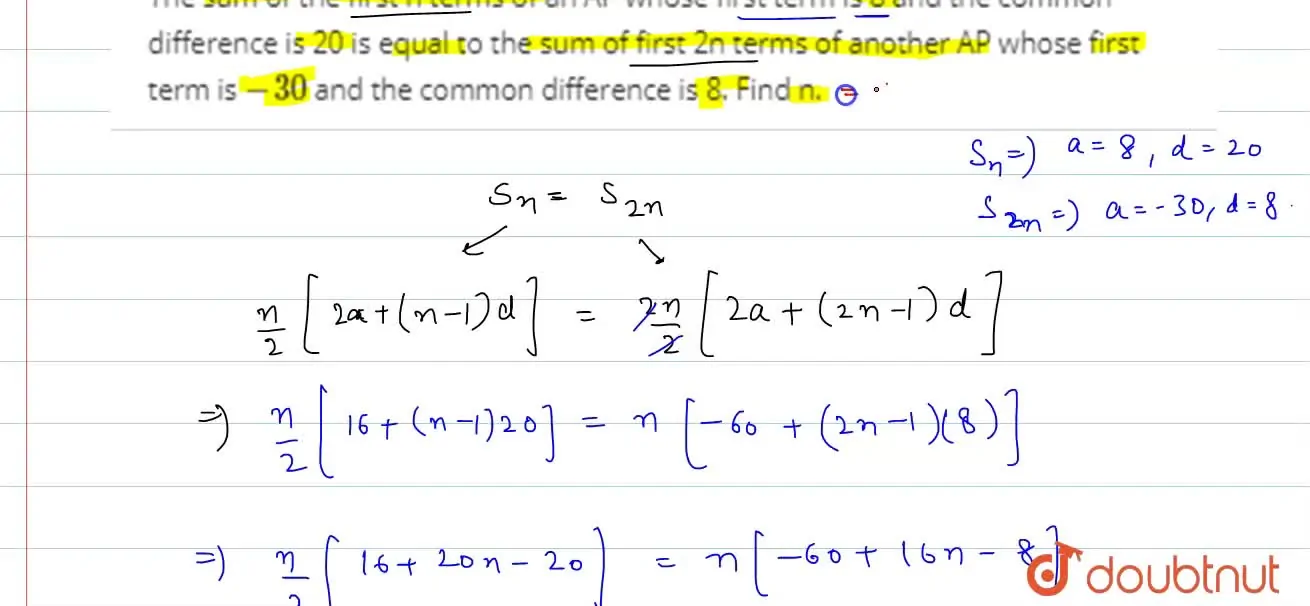The sum of the first n terms of an AP whose first term is 8 and the common difference is 20 is equal to the sum of first 2n terms of another AP whose first term is −30 and the common difference is 8. Find n.
Given that, first term of the first AP (a) = 8
and common difference of the first AP (d) = 20
Let the number of terms in first AP be n.
∵ Sum of first n terms of an AP, Sn=n2[2a+(n−1)d]
∴Sn=n2[2×8+(n−1)20]
⇒Sn=n2(16+20n−20)
⇒Sn=n2(20n−4)
∴Sn=n(10n−2) ...(i)
Now, first term of the second AP(a') = -30
and common difference of the second AP(d') = 8
∴ Sum of first 2n terms of second AP,
⇒S2n=2n2[2a'+(2n−1)d']
⇒S2n=n[2(−30)+(2n−1)(8)]
⇒S2n=n[−60+16n−8]
⇒S2n=n[16n−68] ...(ii)
Now, by given condition,
Sum of first n terms of the first AP= Sum of first 2n terms of the second AP
⇒Sn=S2n [from Eqs. (i) and (ii)]
⇒n(10n−2)=n(16n−68)
⇒n[(16n−68)−(10n−2)]=0
⇒n(16n−68−10n+2)=0
⇒n(6n−66)=0
∴ n=11 [∵n≠0]
Hence, the required value of n is 11.
Related Playlists
Similar Questions
The first four terms of an A.P. whose first term is −2 and the common difference is −2 are
View SolutionSum of first n terms of an A.P. whose last term is
l and common difference is d, isView SolutionThe sum of 40 terms of an AP whose first term is 2 and common difference is 4, will be
View SolutionFind the sum of the first 22 terms of an AP whose first term is 4 and the common difference is 43.
View SolutionFind the sum of first 20 terms of an AP whose nth term is 4n−1
View SolutionThe sum of 40 terms of an AP whose first term is 2 and common difference is 4, will be
View SolutionFind first four terms of an A.P., whose first term is −6 and common difference is +6.
View SolutionFind the nth term of an A.P. Whose first term is 200 and common difference is 7.
View SolutionFor an A.P. if the first term is 8 and the common difference is 8, then Sn=
View SolutionIf the first term of an AP is -5 and the common difference is 2, then the sum of the first 6 terms is
View Solution


